Abstract
OBJECTIVE: To determine the preferences of program directors for various grading systems and other criteria in selecting students for residency training positions through the Canadian Resident Matching Service (CaRMS). DESIGN: Questionnaire survey. PARTICIPANTS: All 110 directors of residency training programs in Ontario. SETTING: Ontario medical schools. OUTCOME MEASURES: Weighting of importance of different screening tools (e.g., grading systems, personal interview, dean's letter) used during undergraduate training. RESULTS: Of the 110 directors 96 (87%) responded. Of the 92 who rated the various grading practices 35 (38%) preferred a numeric grading system, 26 (28%) a letter grading system, 23 (25%) an honours/pass/fail system and 8 (9%) a pass/fail system. Most of the respondents from each school favoured a grading system that was more discriminating than the one used at their location. The personal interview was regarded as the most important screening tool by 80 (83%) of the respondents; the dean's letter was considered to be very useful by only 16 (17%). CONCLUSIONS: More value was placed by program directors on a numeric or other more discriminating grading system than on the pass/fail system. Although the grading system provides only one type of screening mechanism it raises the question of whether there should be a policy for uniform grading practices for all Canadian students.
Full text
PDF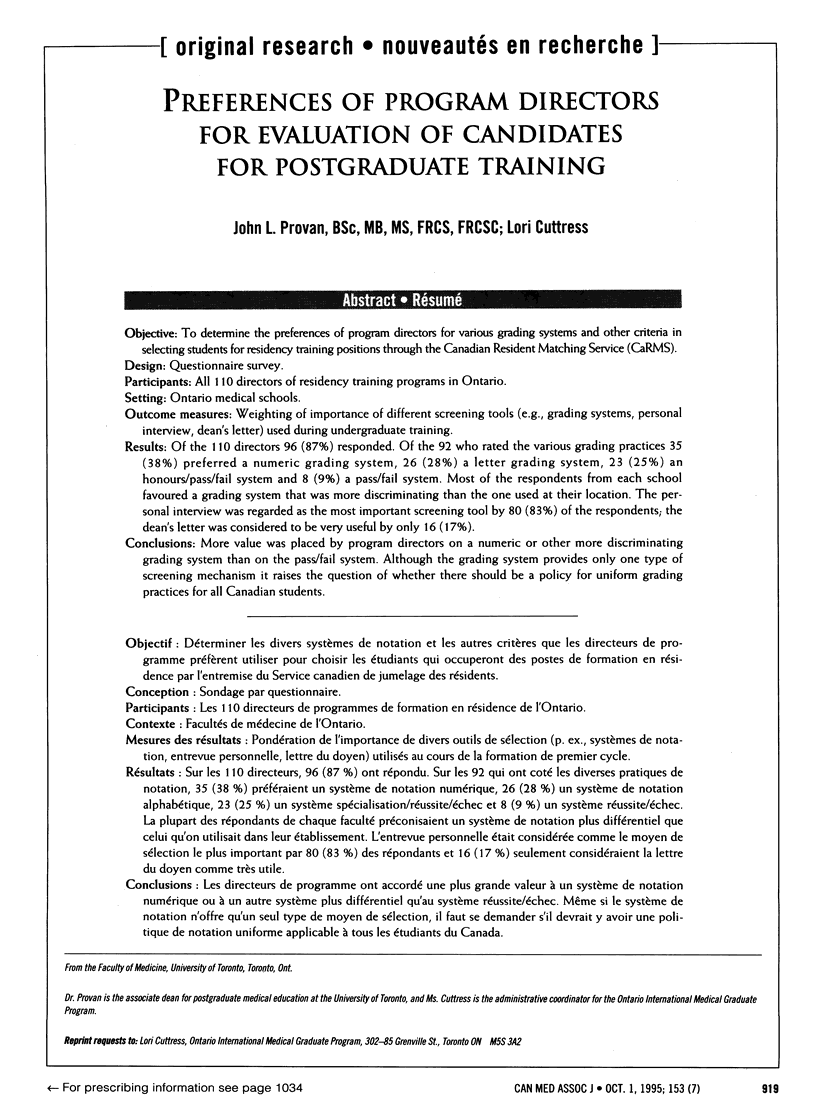
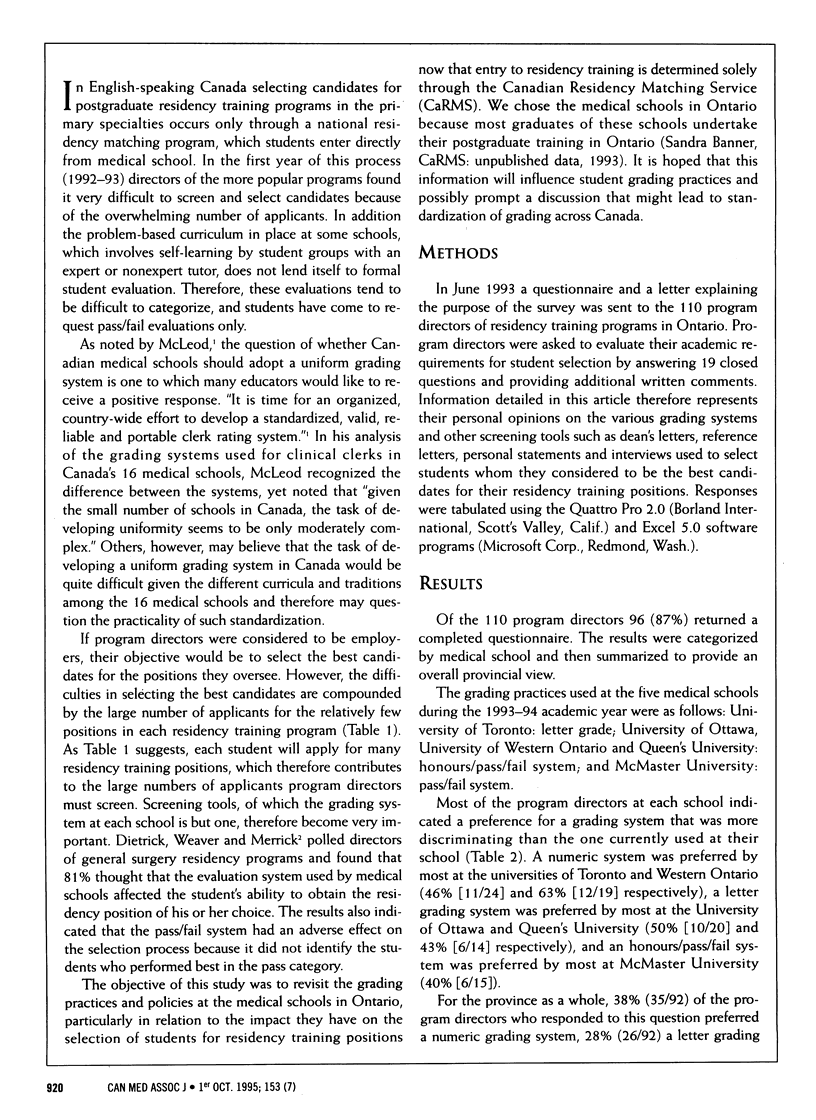
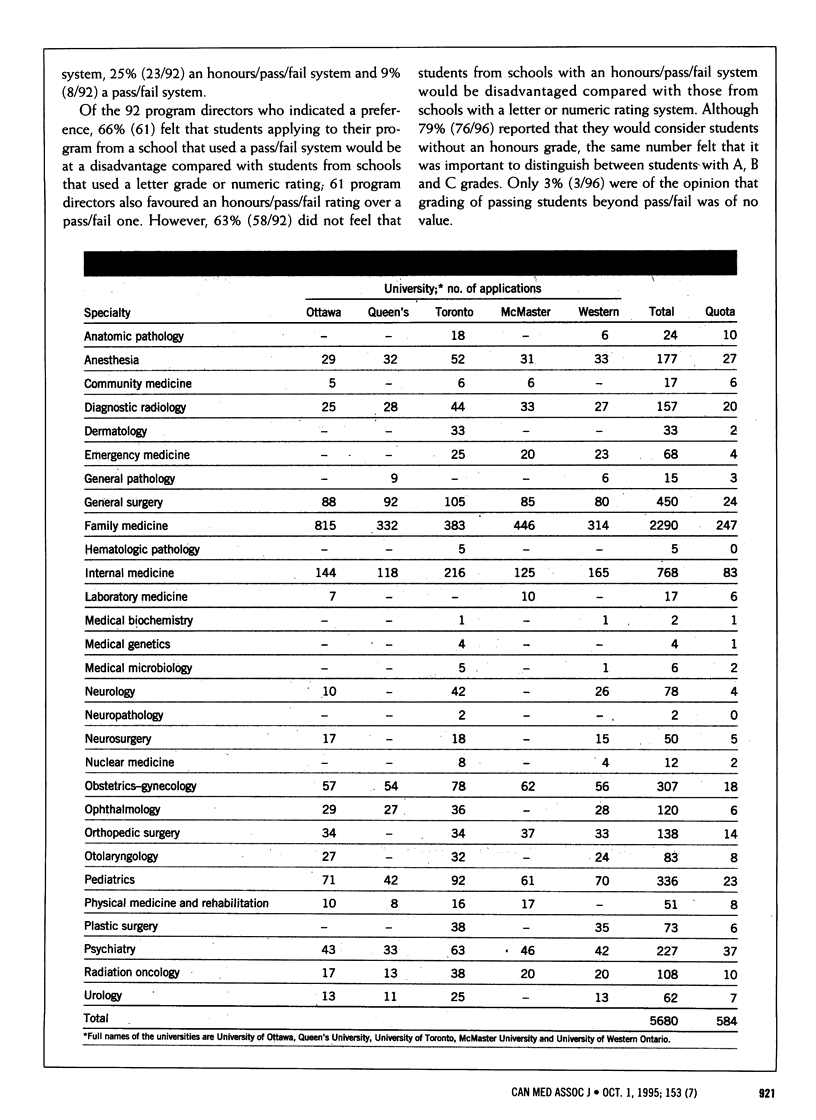
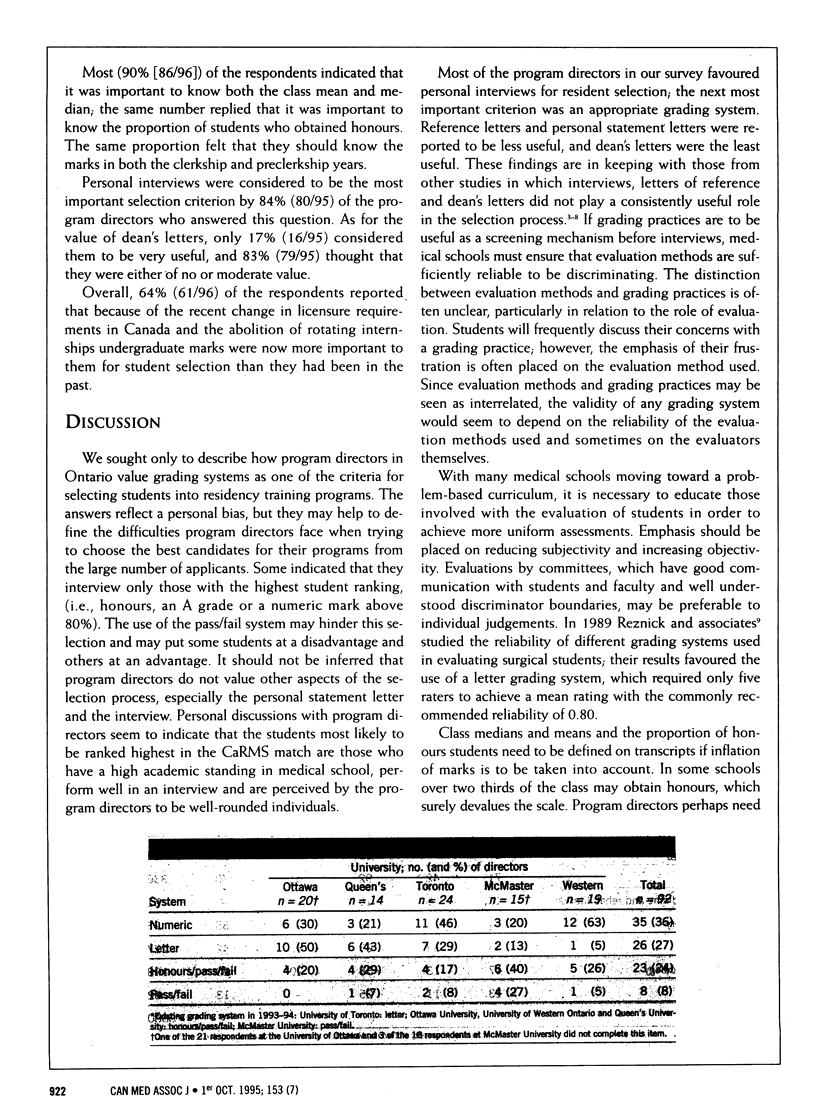
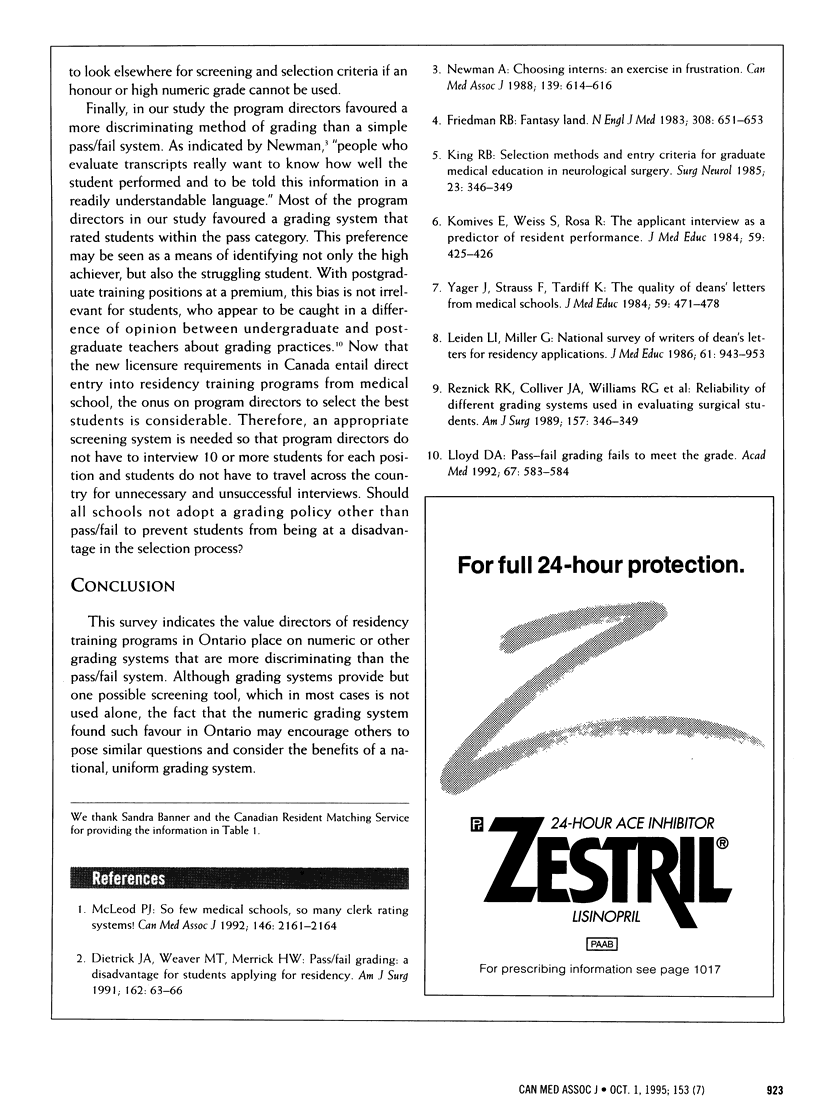
Selected References
These references are in PubMed. This may not be the complete list of references from this article.
- Dietrick J. A., Weaver M. T., Merrick H. W. Pass/fail grading: a disadvantage for students applying for residency. Am J Surg. 1991 Jul;162(1):63–66. doi: 10.1016/0002-9610(91)90204-q. [DOI] [PubMed] [Google Scholar]
- Friedman R. B. Sounding board. Fantasy land. N Engl J Med. 1983 Mar 17;308(11):651–653. doi: 10.1056/NEJM198303173081110. [DOI] [PubMed] [Google Scholar]
- King R. B. Selection methods and entry criteria for graduate medical education in neurological surgery. Surg Neurol. 1985 Apr;23(4):346–349. doi: 10.1016/0090-3019(85)90204-6. [DOI] [PubMed] [Google Scholar]
- Komives E., Weiss S. T., Rosa R. M. The applicant interview as a predictor of resident performance. J Med Educ. 1984 May;59(5):425–426. doi: 10.1097/00001888-198405000-00009. [DOI] [PubMed] [Google Scholar]
- Leiden L. I., Miller G. D. National survey of writers of dean's letters for residency applications. J Med Educ. 1986 Dec;61(12):943–953. doi: 10.1097/00001888-198612000-00001. [DOI] [PubMed] [Google Scholar]
- Lloyd D. A. Pass-fail grading fails to meet the grade. Acad Med. 1992 Sep;67(9):583–584. doi: 10.1097/00001888-199209000-00005. [DOI] [PubMed] [Google Scholar]
- McLeod P. J. So few medical schools, so many clerk rating systems! CMAJ. 1992 Jun 15;146(12):2161–2164. [PMC free article] [PubMed] [Google Scholar]
- Newman A. Choosing interns: an exercise in frustration. CMAJ. 1988 Oct 1;139(7):614–616. [PMC free article] [PubMed] [Google Scholar]
- Reznick R. K., Colliver J. A., Williams R. G., Folse J. R. Reliability of different grading systems used in evaluating surgical students. Am J Surg. 1989 Mar;157(3):346–349. doi: 10.1016/0002-9610(89)90568-0. [DOI] [PubMed] [Google Scholar]
- Yager J., Strauss G. D., Tardiff K. The quality of deans' letters from medical schools. J Med Educ. 1984 Jun;59(6):471–478. doi: 10.1097/00001888-198406000-00003. [DOI] [PubMed] [Google Scholar]


